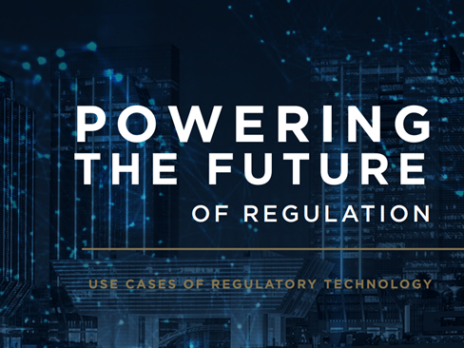

The Gulf Cooperation Council (GCC) region’s GDP could exceed $13trn by 2050 if it embraces a ‘green growth strategy’, according to the World Bank. Abu Dhabi is already leading the charge, with its economy expanding at over 10% a year.
Abu Dhabi’s GDP jumped 10.5% on an annualised basis during the first nine months of 2022 compared with the same period of 2021, according to the Statistics Centre-Abu Dhabi (SCAD), establishing itself as the fastest-growing economy in the Middle East and North Africa (MENA) region. Non-oil GDP expanded by 10.3% on an annualised basis at the end of the third quarter of 2022, led by real estate, accommodation and food services, wholesale and the retail trade sectors.
Recently, Abu Dhabi has launched a series of initiatives to become a more knowledge-based and diversified economy, while simultaneously reforming its regulatory and legal frameworks to encourage foreign direct investment in non-oil sectors. Abu Dhabi‘s vision is to be a ‘green falcon economy’, combining rapid economic growth driven by innovation, transformation and diversification across a number of key economic sectors, with a marked shift towards sustainability.
World-first economic initiatives
Abu Dhabi – with a population of 1.56m people and a GDP of up to $300bn in 2022 – is at the centre of the UAE’s efforts to embrace ‘green economic growth’. Abu Dhabi Global Market (ADGM) has pursued a number of initiatives, including developing a sustainable finance framework, strengthening its policies around ESG, encouraging green investment, helping incubate green tech start-ups, and successfully achieving carbon neutrality by offsetting carbon emissions to be the world’s first ‘carbon neutral’ international financial centre.
In partnership with AirCarbon Exchange – a Singapore-based global carbon exchange using distributed ledger technology on a traditional trading architecture – it also plans to launch the world’s first fully regulated carbon trading exchange and clearing house. ADGM chairs the Sustainable Finance Working Group (SFWG), composed of UAE financial regulators, federal ministries and UAE exchanges. Through its Financial Services Regulatory Authority (FSRA), ADGM facilitates regulatory cooperation among the UAE authorities on practices and frameworks that can enable the finance sector to adopt and support sustainable finance.
The UAE will host Cop28 in November 2023 at Expo City Dubai. This year’s focus will be on the ‘global stocktake’, an assessment of countries’ collective progress towards achieving the goals of the Paris Agreement that came into force in 2016.
“There is an ever-growing synergy between economic growth and sustainability,” Issam Abousleiman, the World Bank’s country director of the Gulf Cooperation Council countries, Middle East and North Africa, observed at ADGM’s Abu Dhabi Sustainable Finance Forum in January 2023. “Sustainability is not an economic burden. Our research at the World Bank shows that there is no inherent, long-run trade-off between emissions reduction, economic growth and poverty alleviation.
“Especially in the GCC, countries stand to gain from [the clean energy] transition, since the region already has a record-breaking, low-cost auction for solar energy supply in the UAE, Saudi Arabia and Qatar. The cost is close to one cent per kilowatt. The region also has the potential to become a lead producer of green and blue hydrogen. With the right regulations, policies and investment to support the transition, they can emerge as stronger and more sustainable economies that generate rewarding jobs, whilst simultaneously protecting the planet.
“Moving in this direction is entirely in line with GCC countries’ visions that outline an image of the economy of the future that relies increasingly on the private sector playing a leading role in investment, job creation and value addition. The vision statements of all the countries are focused on the promise of technological advancement, climate change and making progress on the diversification agenda.”
A green growth system
Abousleiman added that, in 2022, the GCC region – made up of Bahrain, Kuwait, Oman, Qatar, Saudi Arabia and the UAE – had an estimated combined GDP of $2trn, which is forecast to increase to $6trn by 2050 on a business-as-usual basis. However, embracing a green growth strategy could see the economy jump to more than $13trn by the same year.
That is based on a productivity improvement that accompanies a green growth strategy and a very slight increase in productivity of 1%. The estimated additional growth that derives from this strategy could reach 5% every year between now and 2050, Abousleiman said.
The UAE has a strategic goal to achieve net zero by 2050. Abu Dhabi is one of the front-runners in the Middle East in adopting clean sources into its energy mix and the emirate accounts for 79% of the installed solar photovoltaic (PV) capacity in the region.
Around 7% of Abu Dhabi’s electricity is expected to be produced via solar PV and 39% via nuclear by 2025. It also expects to have a combined 8.2GW of installed clean and renewable energy capacity by then. Furthermore, it has introduced a clean energy certificate scheme to help businesses clean their operations and drive investment into green energy projects.
The government recently unveiled a hydrogen policy and regulatory framework, which aims to accelerate Abu Dhabi’s national hydrogen strategy and help the country attain global leadership in low-carbon and clean hydrogen. Its low-carbon hydrogen production could reach more than one million tonnes a year by 2030.
The emirate has a leading competitive advantage as a base for hydrogen production owing to its industrial capacity across the energy value chain, its advanced infrastructure and solid experience in the export shipment of flammable materials and its central location between large-demand markets. It also has significant financing capabilities and a flexible, enabling foreign investment regulatory framework.
A collaborative effort for a green economy
“Let me extend an open invitation to all parties across government, private sector, and civil society: cooperate, collaborate, share your ideas, and talk to us,” Dr Sultan Al Jaber, president of Cop28, UAE minister of industry and advanced technology, and special envoy for climate change, told delegates at the Atlantic Council’s Global Energy Forum in January of this year.
“We can only succeed if we have an open and constructive dialogue. Let us together create a paradigm shift for tangible progress. And let us remember that reaching net-zero emissions will deliver the biggest market transformation with the greatest economic and human promise since the first industrial revolution.”
In helping drive such dialogue, Abu Dhabi is seeking to show the Middle East, and the rest of the world, how it is possible to combine rapid economic growth with a shift towards a greener economy.







